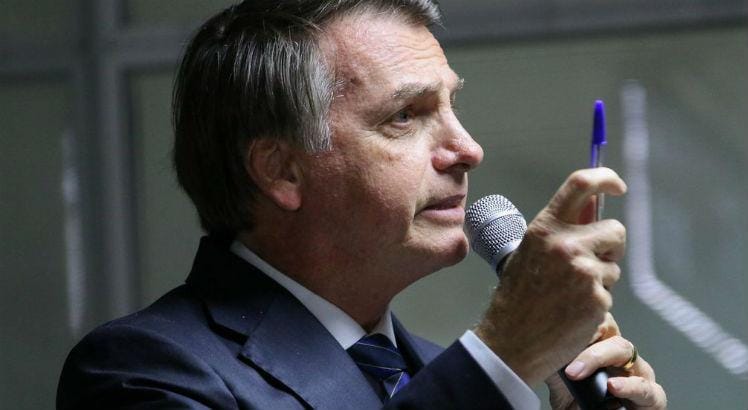Bolsonaro wants to suspend deadlines on Provisional Executive Orders. What are the risks to democracy?
Government proposes to strip Congress of its power to vote on these orders during the Covid-19 emergency
 In practice, the change would give the president greater powers to legislate without the participation and control of Congress (Photo: Fabio Rodrigues Pozzebom/Agência Brasil)
In practice, the change would give the president greater powers to legislate without the participation and control of Congress (Photo: Fabio Rodrigues Pozzebom/Agência Brasil)
The federal government has proposed an alarming change to the procedure for the passage of Provisional Executive Orders. On account of the novel coronavirus pandemic, the Bolsonaro government has asked the Supreme Court to consider the suspension of the deadline for the National Congress to vote on these Orders. In practice, this would give the president greater powers to govern and legislate without the participation and control of Congress.
According to the Constitution, a Provisional Executive Order can be issued by the Executive and have immediate legal effect. The text must deal with relevant issues to be applied urgently at the national level. The Congress then has a period of up to 120 days to analyze the measure. If members of Congress do not vote before the end of this deadline, the legislation loses validity.
The reaction of Congress
Following the government’s request, the Lower House of Congress and the Senate jointly agreed to a procedure to speed up the approval of the Orders. The procedure skips some stages of the normal passage of the legislation, making the process faster. The new rule excludes the stage of debating the Orders in a Joint Committee of Congress, leaving it up to each house to vote on them separately in a full session.
The change will impact the democratic process that underpins the approval of these measures. By eliminating the need for a Joint Committee, the new rule does not provide enough time and space for public hearings and discussions so third sector organizations can offer insights on the legislation. Moreover, passage through a Joint Committee is constitutional (article 62, paragraph 9).
“By removing this space for debate with society, Congress is allowing insufficient time and space for studying the issue and for making suggestions to improve the texts,” explained Camila Asano, program coordinator at Conectas.
“If this new rule is maintained, it could severely limit the participation of society in the legislative process for the approval of Provisional Executive Orders, by preventing the contribution of experts, academia and groups that defend the populations affected by the measures. Obviously, the work of the Joint Committee should be done remotely, making use of the technology solutions that Congress already uses, and new deadlines can be set exceptionally considering the current state of the pandemic,” she added.
Supreme Court
There are two legal actions currently pending in the Supreme Court that propose letting the government issue Provisional Executive Orders with the deadlines for approval in Congress suspended while the coronavirus pandemic lasts: one from President Jair Bolsonaro and another from the Progressive Party.
The rapporteur of the case, Justice Alexandre de Moraes, stated in his decision that the suspension of these deadlines is unconstitutional and he emphasized the need for the proper functioning of the democratic institutions. Justice Moraes noted the fundamental importance of letting the Legislature decide on matters legislated by Provisional Executive Order. He therefore authorized the Lower House of Congress and the Senate to speed up the procedure for voting on these measures – considering the urgency currently needed to discuss and solve problems.
On Thursday, April 16, the Supreme Court will decide on the injunction granted by Justice Moraes. No date has yet been set for a decision on the merit of the actions.


